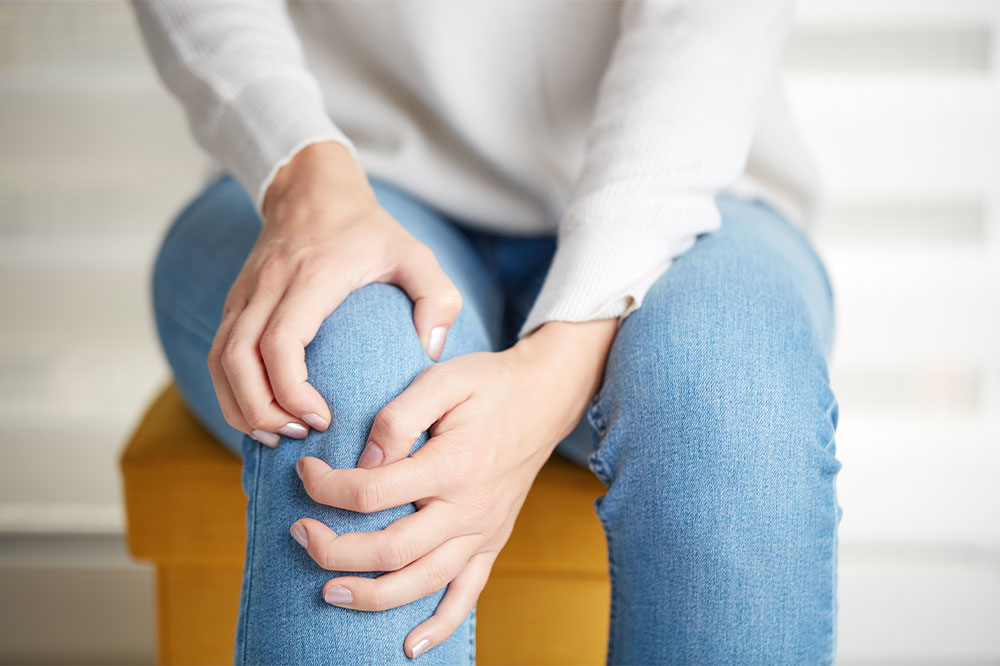5 conditions that may lead to bone loss

It is widely known that old age and menopause tend to increase the risks of osteoporosis or bone loss. However, very few people know that some specific disorders can also increase the chances of bone loss. While some of these conditions are the root cause of bone loss, others indirectly enhance the risk of diseases such as osteoporosis. Thus, here are five health conditions you must know and adequately manage to prevent bone loss:
Diabetes
For reasons still unexplained, scientists have observed that patients with Type 1 diabetes frequently suffer from bone loss. According to studies, the bones of patients with Type 1 diabetes tend to have delayed bone recovery and regeneration. Besides, their bone formation also is lower than normal. Type 1 diabetes typically begins in childhood, a period when your bones are still in the developing stage. In this condition, your pancreas releases little or no insulin, a protein hormone that maintains your blood sugar by carrying them to different parts of the body to be used as energy. It has been observed that without a sufficient amount of insulin, your bones may not reach their peak potential density. Furthermore, even if their bone density is not too lower than normal, patients with Type 1 and Type 2 diabetes are more susceptible to bone fracture than others.
Hyperthyroidism
Hyperthyroidism is a condition in which the thyroid gland becomes overactive and generates excessive thyroid hormone. An overactive thyroid can increase the rate of bone regeneration. In other words, it can escalate the number of cycles in which the old bones are substituted by newer ones. The problem with such a process is that any bone-remodeling cycle after 30 turns redundant. Instead of developing new healthy bones, such cycles tend to cause loss of bone mass. Thus, the more bone-remodeling cycles you undergo, the more bone density you lose. This increases the risks of osteoporosis.
Celiac disease
Celiac disease is a condition in which your body grows allergic to gluten, a protein typically found in grains, specifically wheat and wheat products. Consumption of gluten may lead to the immune system attacking the small intestine. Consequently, your body will find it difficult to absorb nutrients, including Vitamin D and calcium, both being critical for proper bone health. So, if you are diagnosed with celiac disease, it is essential to avoid gluten in your foods at all costs so that your body is able to heal.
Lupus and rheumatoid arthritis
Lupus and rheumatoid arthritis are very common diseases in the country. One common feature they share is that both are autoimmune condition, which basically means the body attacks its own healthy tissues and cells, triggering inflammation. According to specialists, any chronic inflammatory disease can increase the risks of bone loss as they tend to increase the bone turnover rate. Patients with RA and Lupus tend to manage their symptoms by taking corticosteroids. However, taking steroids like prednisone for prolonged periods can increase the risks of boss loss as they slow down the process of bone building. Even though both of these arthritis types cause bone loss, lupus is the more potent one because of its incidence among women in their peak bone-developing years, i.e., 15 to 45. Anything that inhibits the development of bones during this period can increase the risk of osteoporosis.
Asthma
Asthma itself does not cause bone loss, but treatments for it have been known to do so. Patients with asthma tend to manage their breathing problems by using inhalers that often contain corticosteroids like prednisone, a significant contributor to osteoporosis and bone loss.
Besides that, young asthma patients often find it difficult to engage in heavy exercises. Consequently, their bodies do not receive the benefits of weight-bearing physical activities, which are essential for the bone development process.
Medical disorders and bone density
When you are diagnosed with health conditions like asthma, lupus, or diabetes, more often than not, you may forget to take into account the side effects. Consequently, conditions like osteoporosis may not even feature in your mind. This happens because most patients consider it the doctor’s responsibility to talk about the side effects.
However, that should not be the case. It is crucial for you to discuss with your doctor the possible side effects of your condition and ascertain if there are chances of bone loss or not. Based on your health condition and age, your doctor may prescribe several options to treat or prevent bone loss. If your bone loss is due to menopause, here are some typical remedies your health professional may prescribe:
Evenity
It is a prescribed injection for postmenopausal women with osteoporosis. It is given when other osteoporosis treatments fail to work or the patient’s medical condition does not allow to take them. It helps build new bone at a rapid pace and reduces the risk of spinal fractures in 12 months.
Forteo
It is a teriparatide injection to treat osteoporosis in women after menopause so that they do not experience spine and bone fractures. It is used in cases where other osteoporosis treatments cannot be chosen. Forteo also helps increase the bone mass in men with primary or hypogonadal osteoporosis who are at high risk of fractures. It can also be used for men and women who have been prescribed prednisone for several months.







